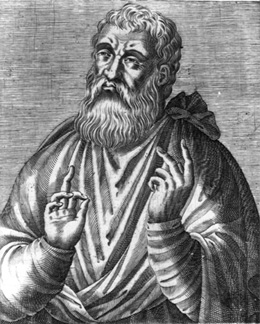I find it discomposing that so many Christians are willing to sacrifice the word of God in order to make their faith easier for them. For example, in John 5:2-6 there is spoken of a pool which an angel is said to visit at a certain time, after which whomever steped into the water first would be healed. I have heard several Christians dismiss this as a Jewish superstition. But wait, does our own Christian New Testament not make it a statement of fact that this actually occurred? I cannot interpret the reading any other way but as a statement of fact.
My objective on this post is to encourage the reader to be unwavering when it comes to the word of God. It is my belief that if a believer waivers on one word in the Bible he is then compromising the integrity of the Bible as a whole for himself and for those he is a witness to, and is thus weakening his own faith and testimony. According to Paul
All Scripture is given by inspiration of God, and is profitable for doctrine, for reproof, for correction, for instruction in righteousness, that the man of God may be complete, thoroughly equipped for every good work. 2 Timothy 3:16-17
Now, if all Scripture is given by God, can any scripture be false? Yes, God spoke it and man wrote it, and yes man is capable of mistakes whereas God is not. However, would the almighty God allow man to negatively influence or corrupt His holy word which is supposed to be passed down throughout generations? I am not saying that there are no incorrect interpretations of His word, but that these false teachings and writings shall be made evident to those who seek His true word. I find support for this in Matthew 5:18. Also, stated in Psalm 119:151, all of God's commandments (scripture) are true. So, how could a person honestly say that they believe in the Lord Jesus Christ, when they reject any part of His Word? I find the two inseparable since John wrote "the Word was with God and the Word was God" in John 1:1.
Moving on to the heart of what I foresee to be the foundation of several upcoming post. The book of Genesis should be understood by Christians as an inerrant part of the recorded history of the world. I have been told by some that the story of creation is written in poetry, and should not be interpreted as literal, but I challenge those to show me where the poetry ends and the true record begins. When reading Genesis it is one written account, smoothly transitioning through time. Even so, if it were written in poetry, it would still be factually accurate according to Psalm 119:151. Additionally, creation is referred to other places in the Bible. One New Testament statement on creation is found in John,
In the beginning was the Word, and the Word was with God, and the Word was God. He was in the beginning with God. All tings were made through Him, and without Him nothing was made that was made. In Him was life, and the life was the light of men. And the light shines in the darkness, and the darkness did not comprehend it. John 1:1-5
In closing, I would like to ask, if a Christian accepts that one scripture is in error, then how would he defend his belief in any other scripture? If the Bible as a whole is not the complete inerrant word of God, how can one be certain any part of it is? I encourage you to hold firm to every written word, to study out the scriptures, to be able to defend what it is that you believe in. No part of the Bible has ever been proven untrue. On the contrary, throughout history the Bible has revealed truth, even before the science of the day had accepted this truth.
As always, feel free to post questions or comments below anytime, I will answer questions to the best of my ability, or refer you to an appropriate source. Please bare in mind at this time however that I will be going into much more detail on points of creation in the near future, but your questions will still be welcomed now, I will simply refer you to the new post if applicable.









